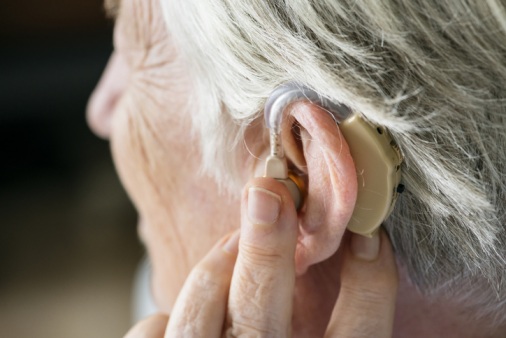Hearing aid loss claims rise by 53% since face coverings made mandatory

Latest claims data from insurer, MORE THAN, shows that the number of insurance claims for lost hearing aids has rocketed by 53% since face coverings were made mandatory in July.
Face coverings bring challenges for hearing aid users, sadly causing some to lose their device
To support those affected, MORE THAN is sending free face covering extenders to customers who have made claims for lost hearing aids, helping them to avoid losing their device
MORE THAN is working with national hearing loss charity, RNID, to highlight the challenges faced by those with hearing loss and offer guidance around face coverings
Although face coverings are a necessary and important way of reducing the spread of COVID-19, they are also inadvertently causing challenges for those with hearing loss. With hearing loss affecting 12 million people in the UK, many hearing aid users have expressed how face coverings, which are worn around the ears, are dislodging their devices.
With face coverings also creating difficulties lipreading and causing muffled speech, many of those with hearing loss have become more reliant on hearing aids, so losing these devices can have a significant impact on their daily lives.
One hearing aid user, veterinary surgeon Jemma Sulsh from Surrey, said: “Not being able to lipread other people while wearing a face covering is really affecting me. My job involves speaking to pet owners and listening to concerns they have, which is made a lot more difficult when the sound is muffled.
“My hearing aids also often get caught when I take the face covering off and I get worried about losing or damaging them. This is such an important issue to raise awareness of and the day-to-day challenges of wearing a face covering with hearing aids.”
To help address this growing concern, MORE THAN will send out free face covering extenders to customers that have made claims for lost hearing aids since lockdown in March1. Face covering extenders mean that face coverings can be connected around the back of the head, rather than behind the ears, reducing the risk of hearing aids becoming dislodged.
In addition, MORE THAN is working alongside RNID, the charity making life fully inclusive for deaf people and those with hearing loss or tinnitus, to provide guidance for people experiencing problems with their face covering and hearing aids. The charity has published useful tips on how to wear a face covering if you use hearing aids or a cochlear implant. They say:
Face coverings that tie around your head and do not touch your ears will help keep your hearing aids or cochlear implant processor secure.
If you have a face covering that has elastic straps, try a mask extender, which you use to link the straps at the back of your head. You can buy these, make your own, or try something similar by adding an extra piece of material to tie the straps together at the back of your head.
Try to only remove your face covering when you are in a place where your hearing aid or cochlear implant processor could be easily found if it falls out.
If you are concerned about losing your hearing aid or cochlear implant processor, consider using safety line or retention cords.
Andrew Moore, Home Claims Director at MORE THAN, said:
“While face coverings are a necessary and important way of reducing the spread of the virus, they are inadvertently causing challenges for those with hearing loss – including difficulties lipreading and an increase in hearing aids becoming dislodged and lost. “Millions of people in the UK use hearing aids4, so we wanted to do something to try and help those who are affected by this issue. That’s why we’re sending face covering extenders to our customers who’ve made claims for lost hearing aids, while also working with RNID to offer guidance. We hope that this will go some way to reduce some of the challenges those with hearing loss are experiencing during this difficult time.”
Ayla Ozmen, Head of Research and Policy at RNID, said:
“Face covering extenders can work really well at keeping hearing aids or cochlear implants secure, and so it’s very welcome that MORE THAN is making this commitment today. When it comes to the issue of face coverings in general, they can also cause significant difficulties for people who are deaf or have hearing loss as they prevent lip-reading and hide facial expressions. We’d advise everyone to visit the RNID website to see our simple tips, such as reducing background noise and using speech to text apps, for communicating with people who are deaf or have hearing loss when wearing face coverings. “We campaign for an inclusive society, and we’re really excited to be part of a project that brings to light an issue that many are dealing with daily. Together, we hope to support those who are struggling and encourage people who need advice to get in touch.”
Authored by RSA
About RSA
With a 300-year heritage, RSA is one of the world’s leading multinational insurance groups.
Today, RSA employ around 23,000 people, serving 17 million customers in around 140 countries. While RSA's origins lie in London, RSA is a global company with businesses in both mature and emerging markets. RSA have major operations in the UK, Ireland, Scandinavia, Central and Eastern Europe, Canada, Asia, the Middle East and Latin America. youTalk-insurance sharing insurance news and video.

